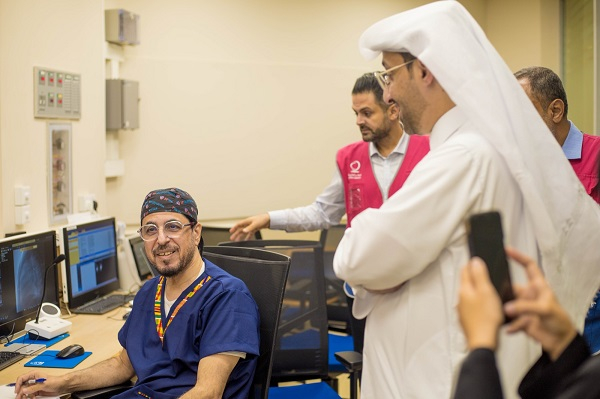
Update on July 8, 2015: Qatar’s Court of Appeal upheld the lower court’s guilty verdict earlier this week. However, it suspended the one-year prison term. This means the man will not spend any time in jail if he abides by the court’s conditions. He still faces deportation to his native New Zealand.
A New Zealand man living in Qatar has been handed a one-year prison term after being found guilty in a case involving the sexual assault of a seven-year-old girl.
A Doha court found 41-year-old Richard Gerrand guilty after he was charged with “breaching the honor” of the victim by attacking her.
The man, who was a university student studying primary education when the offense occurred last fall, will also be deported after serving his sentence, which was handed down this morning.
Though he was previously briefly jailed following the incident, he is not currently in custody and is said to be planning to appeal the verdict.
It’s common in Qatar for defendants who have been released on bail or under their own recognizance not to be immediately taken to prison following the initial verbal delivery of a verdict.
It’s not clear whether the man is currently under a travel ban, but defendants in criminal trials in Qatar are typically prevented from leaving the country.
Family’s response
The victim’s parents previously told Doha News that their daughter was molested during a sleepover last November at the home of the defendent, who was a friend of the family and has a daughter the same age as the victim.

The victim’s family left the country for good earlier this year after growing frustrated with what they argued was a lack of adequate support services for their daughter in Qatar, as well as being unable to receive an update on the status of the legal proceedings.
After being informed of today’s verdict, the victim’s mother said in a statement that the family was happy with the outcome and thanked the authorities in Qatar.
“Today justice has been served and we can now move on,” she said. “Justice has been done for ONE little girl who was brave enough to tell … that what this man did to her … was wrong.”
The defendent could not be reached for comment following Thursday’s hearing, but told the court he was innocent when charges were read out by the prosecutor in March. When reached by phone today, his wife declined to comment to Doha News.
Trial
A forensics expert who examined the victim’s clothing was the only witness who testified at the relatively short trial, which lasted three sessions, including procedural hearings to read out the charges and deliver the verdict.
She told the court that the defendent’a DNA was present in saliva samples she found on the “middle to lower” portion of a young girl’s pink dress. His saliva was also found on an undershirt as well as another piece of girl’s clothing submitted for testing.

The witness, who works in the Ministry of Interior’s criminal lab investigation department, was asked under cross-examination if the saliva stains could have been caused by someone sneezing in the vicinity.
She said that was not possible. The defendant’s lawyer then asked if saliva could be transferred to clothing that had been used to wipe a table that had been coughed on.
The witness replied it was theoretically possible, depending on the amount of saliva on the table.
In court, the defendant’s lawyer argued that the family of the victim had filed a “malicious claim” against his client.
Despite knowing that the victim’s mother was no longer in the country, the attorney added that he would still like to call her as a witness.
The prosecutor replied that in the woman’s absence, the court could refer back to the testimony that the victim’s mother had given police and the prosecutor’s office.
No medical exam
A complete medical examination was not performed on the victim following the incident, though the girl’s parents had taken their daughter to the Pediatric Emergency Center in Al Sadd, which is part of Hamad Medical Corp.
The victim’s father said the doctors there were sympathetic, but the visit was “not a good experience.”

He previously recalled that his daughter was taken to a “cold and clinical” room for a physical examination by several male doctors as well as other individuals – possibly student doctors, as their role was never explained.
Her father said his daughter was crying in the crowded room at this point and that he and his wife decided not to subject her to the examination under those circumstances, choosing instead to leave the hospital.
Insufficiently trained healthcare providers, bureaucratic hurdles and a reluctance to break cultural taboos are all believed to contribute to a severe underreporting of child abuse in Qatar, health officials have said.
In one of the few local studies on the subject, a 2013 survey by the Supreme Council for Family Affairs found sexual assaults typically make up a very small fraction of reported child abuse incidents in Qatar.
Thoughts?







